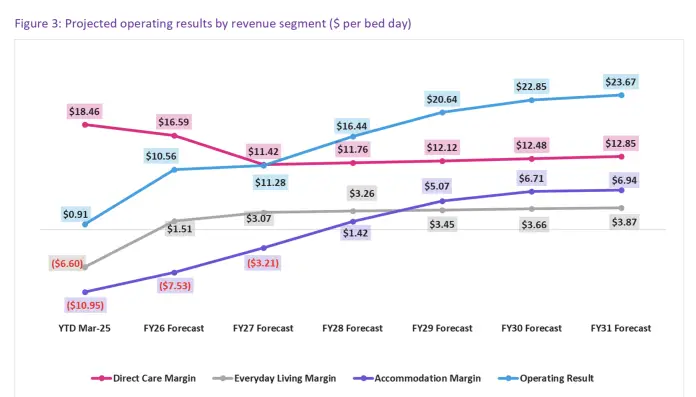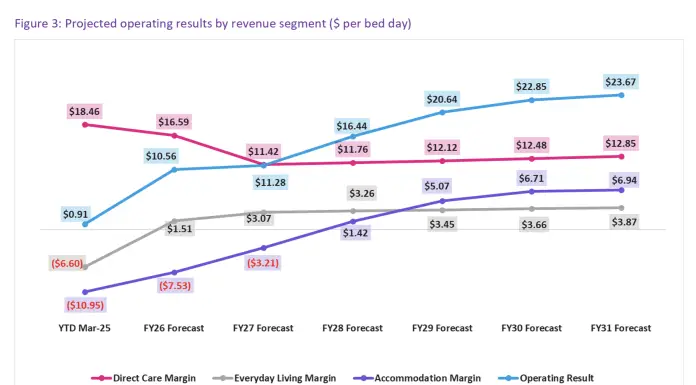Residential aged care providers face ongoing financial pressure despite new funding increases, according to a StewartBrown discussion paper.
From 1 October 2025, the Australian National Aged Care Classification (AN-ACC) price will rise from $282.44 to $295.64 per resident per day, following recommendations from the Independent Health and Aged Care Pricing Authority (IHACPA). The government has also confirmed a 42 per cent increase to the hotelling supplement – covering meals, cleaning and laundry – lifting it from $15.60 to $22.15 per resident per day from 20 September 2025.
The changes, announced by Aged Care Minister Sam Rae earlier this month, are designed to provide more sustainable support for the more than 200,000 Australians living in residential aged care. IHACPA said its pricing advice was based on the average cost of delivering services, adjusted for wage increases, superannuation changes, care-minute targets and inflation.
However, StewartBrown’s analysis suggests the increases may not go far enough. The consultancy found that while direct care margins remain in surplus, they are expected to shrink as providers absorb rising labour and compliance costs, including Fair Work Commission wage rulings, superannuation guarantee increases and higher workers’ compensation premiums.
”StewartBrown analysis suggests that the overall increase in AN-ACC funding per day may be insufficient to meet ordinary cost increases and the additional costs associated with the FWC work-value award and other FWC non-award increases from 1 October, to maintain the current direct care margin surplus.”
StewartBrown noted that hotel and accommodation services continue to run at a deficit, historically cross-subsidised by direct care margins. Even with the hotelling supplement increase, average shortfalls remain, particularly in facilities that do not charge extra service fees.
The paper also highlights structural issues with funding. IHACPA’s reweighting of AN-ACC classes may reduce the number of activity units allocated per resident, affecting overall funding. StewartBrown cautioned that without a more balanced approach, sector sustainability and investment appetite could weaken.
The consultancy argues that a “reasonable direct care margin” is essential to support quality, staffing and innovation, and calls for advocacy to embed such margins into future funding models. It also pressed for reforms to the accommodation supplement, which remains well below average market room costs, disadvantaging supported residents.
StewartBrown concluded that while recent reforms have improved sector performance after years of deficits, ongoing cost-based pricing without adequate margins risks undermining financial sustainability in the medium term.











